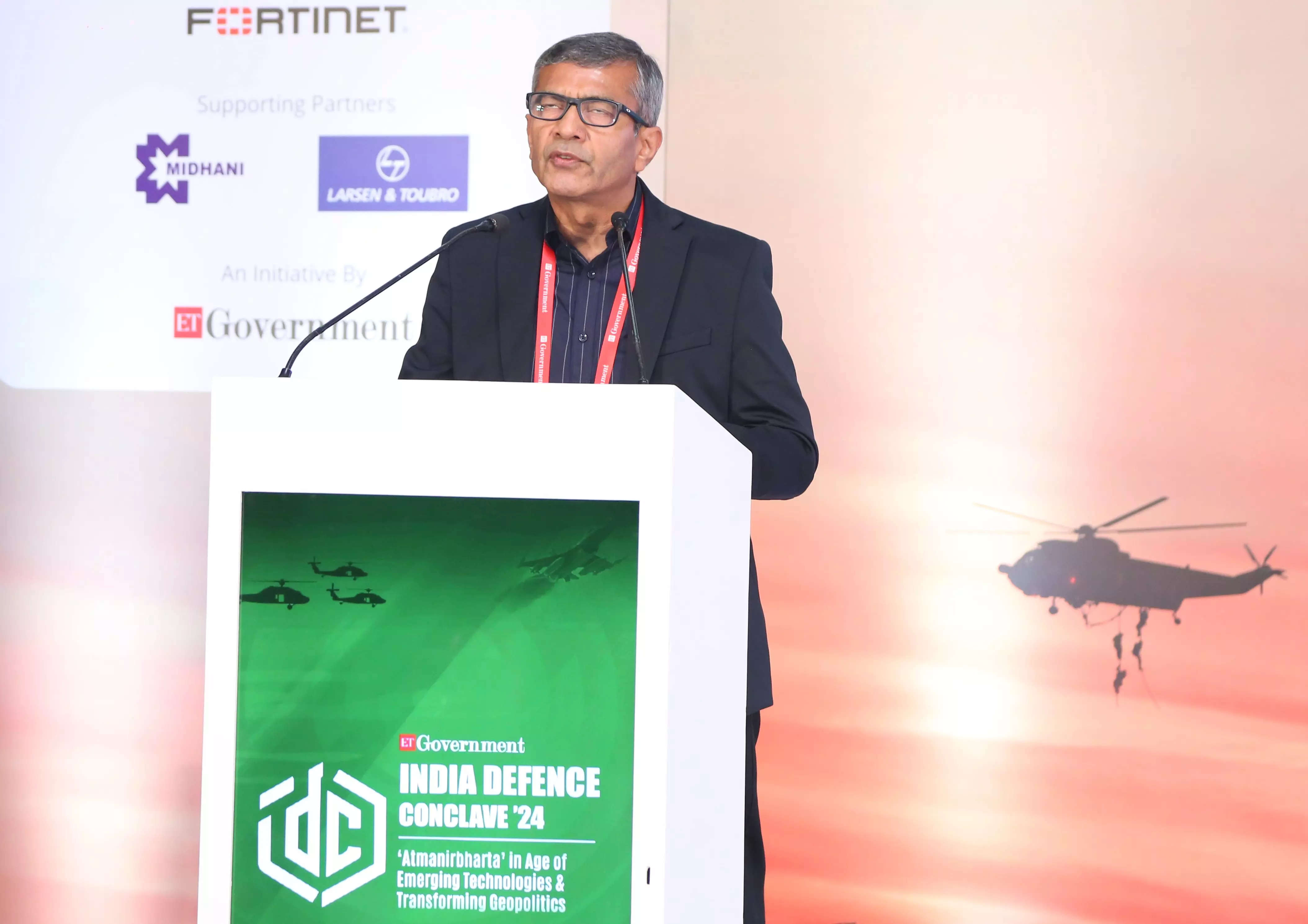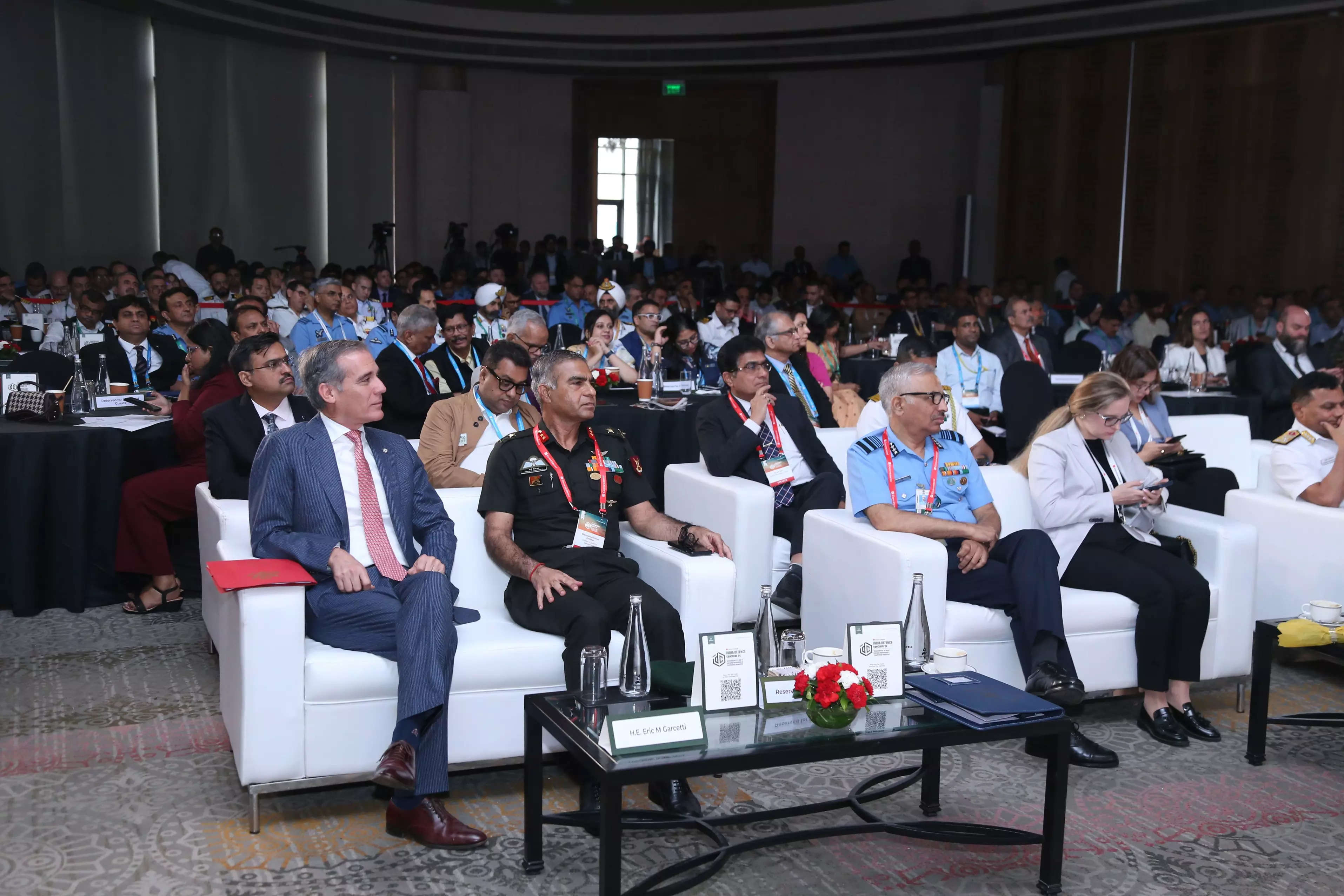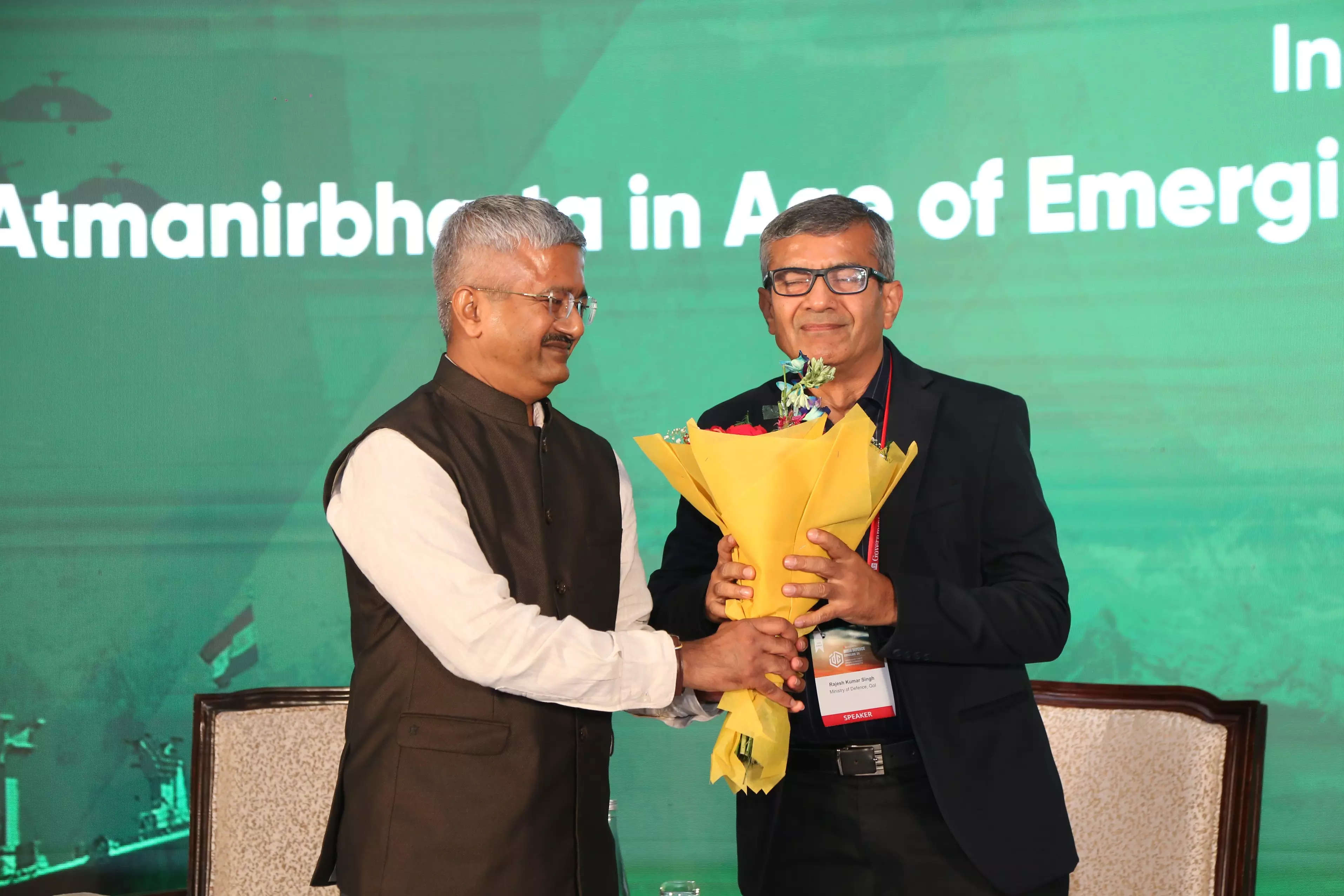
The national stage for Atmanirbharta or self-reliance in defence technologies and platforms, the 2nd edition of the India Defence Conclave, was successfully conducted by ETGovernment at Hyatt Regency in New Delhi, on September 13. With addresses, presentations and panel discussions involving top government officers, policy makers, experts from think tanks, diplomats, defence and foreign policy thinkers, academics, senior officers from all three services–Army, Navy and Air Force–and DRDO, and representatives from public and private sector defence manufacturers, the India Defence Conclave proved true to its theme of “Atmanirbharta in the age of emerging technologies & transforming geopolitics.”
Over 300 guests from the three services, embassies, diverse government departments, universities, think tanks and public and private sector companies arrived to listen to the speakers at the India Defence Conclave ‘24.
The inaugural panel at the India Defence Conclave ‘24 consisted of: Rajesh Kumar Singh, Defence Secretary Designate, Ministry of Defence, Government of India, Dr. Rajendra Kumar, Secretary, Border Management, Ministry of Home Affairs, Government of India, H.E. Eric M Garcetti, Ambassador of the United States of America, H.E. Denis Alipov, Ambassador of Russia, H.E. Thierry Mathou, Ambassador of France, and Anoop Verma, Editor-News, ETGovernment.
The highlight of the Inaugural Session was clearly the keynote address by Rajesh Kumar Singh, Defence Secretary Designate. In his address lasting over 13 minutes, he provided an insight into the policies that the Government of India is likely to follow to ensure that policy of Atmanirbharta actually leads to the achievement of indigenization in the defence sector and there is growth of a vibrant defence industry in the country.

Rajesh Kumar Singh began his address by noting that his previous assignment was as Secretary, Department for Promotion of Industry and Internal Trade (DPIIT). “There is a fair amount of overlap between DPIIT and the Ministry of Defence, whether it is in the ease of doing business, Make in India procurement policies, and in terms of the startup ecosystem that DPIIT tried to encourage in this country. DPIIT also had a role in facilitating private investment in the defence sector. It also had a role in the FDI policy for the sector,” he said.
“This is a phase of economic nationalism across the world, of trade alliances, of real focus on diversification of supply chains and building resilient supply chains. “Concepts like friendshoring have become increasingly popular and countries that used to lecture us about free trade policies are essentially getting into the kind of subsidy and industry policy mode that they used to warn us against in an earlier era. In that context, India has tried to create policies and institutions to bring about greater self-reliance in the defence sector,” Rajesh Kumar Singh said.
“We started by creating ease of doing business in the sector. When I was in DPIIT we came up with a system that ensured that licensing for the defence sector was kind of automatic. We started by giving 15-year licenses. It is possible, perhaps, to think of, one day, doing away with licensing but in a country where small arms are licensed in the hands of the individual, it is difficult to delicense production entirely. But we can strive to make it easier for genuine private investors who want to invest in the sector,” Rajesh Kumar Singh said.
“One of the things that we could do is to improve the processes so that the confinement or the approval of the licenses should not take as much as one year. It should take three to five months, at the most. When it comes to FDI, it is noteworthy that, in 2020, 74% FDI via the automatic route was allowed in the space and defence sectors. The figures that I have show that about Rs. 5000 crore has come in through this route so far. We hope the numbers will increase, particularly because the days of India relying only on imports to meet its defence requirements are now gone,” he said.
“We intend to increasingly indigenize our defence procurement. The foreign equipment manufacturers who wish to have a share of the Indian defence market will have to invest here by taking advantage of the almost open sky investment policy that we maintain,” he added.
Emphasizing the need for private sector participation in the defence sector, the Defence Secretary Designate said, “We have to look at defence manufacturing in India as a two-horse race where both the public and private sector contribute to the capital acquisition target of the Government of India through more public-private partnerships, by taking advantage of home grown technologies. In certain cases where technology is not available, there is the option of technology transfer from abroad.”
He also noted that the policies of the Production Linked Incentive scheme and indigenous content can lead to the growth of the defence manufacturing sector in the country. “We need to ensure that the domestic value addition improves in the sector by enabling private sector component manufacturers and the MSMEs to grow, not just the public sector behemoths. We need a proper ecosystem when it comes to the defence industry,” he said.
“We need to ensure that the private sector becomes an equal partner in the defence manufacturing sector by offering them a level playing field, in terms of licensing and procurement policies. As far as the foreign equipment manufacturers are concerned, we encourage them to set up manufacturing facilities in India for building major defence platforms and facilitating the transfer of technology to the Indian defence ecosystem.”
Rajesh Kumar Singh noted that some major private sector players have already started investing in India. “We hope that this trend will continue to grow. Our intention is that the foreign manufacturers should Make in India. They should Make in India not only for India but also for the world.”
He ended his address by emphasizing that India will double down when it comes to indigenization of defence platforms in the next few years. We will double down on ensuring that the indigenization in defence manufacturing is actually achieved and is not just on paper. We will double down on creating a level playing field for the public and private sector in the areas of licensing and procurement, with increasing focus on PPP.”
“We recognize the need to expedite our procurement policies. We will try to ensure that the processes are expedited, redundant processes are weeded out or made concurrent. We will double down on improving the ease of doing business in not just the defence sector but for the economy as a whole,” Rajesh Kumar Singh said.



